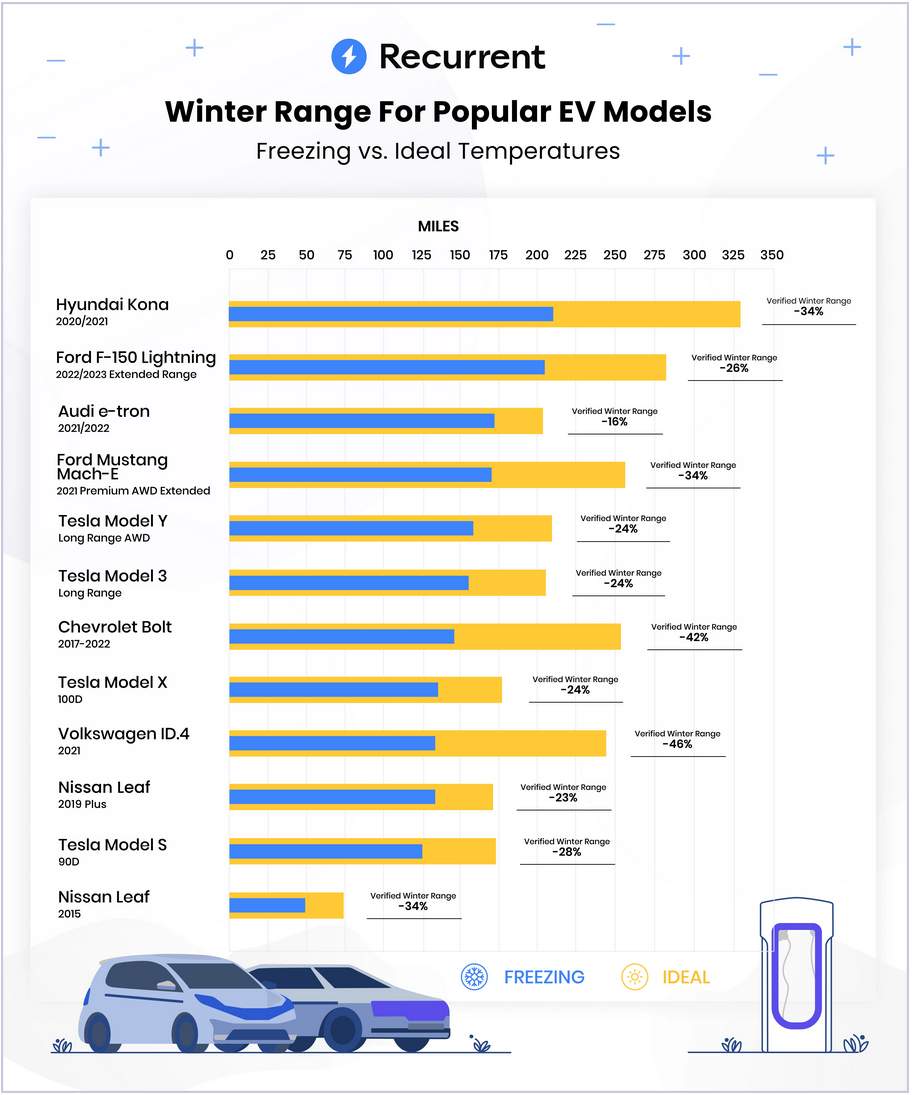As America grapples with a sweeping cold wave, the spotlight turns to the automotive world, particularly on electric vehicles (EVs) and hybrids. With frigid temperatures challenging the norms of vehicle performance, understanding the impact of cold weather on EVs and why hybrids emerge as a superior choice in such conditions becomes crucial.
The Challenge for Electric Vehicles in Cold Weather
Electric Vehicles (EVs), known for their environmental friendliness and cutting-edge technology, predominantly use lithium-ion (Li-ion) batteries. However, the recent cold snap has put these batteries to the test. In subzero temperatures, EV owners are facing a notable dilemma: significant performance issues. The range of these vehicles can drop by nearly half in some models, and the inability to charge could leave you stranded. Why does this happen?
It all boils down to chemistry. Li-ion batteries rely on the movement of lithium ions through an electrolyte to store and release energy. In cold weather, these ions sluggishly move, resulting in a slower energy release and reduced charging speed. This scientific fact translates into real-world challenges for EV drivers, who may find themselves tethered closer to charging stations and facing longer charging times. Long lines at charging stations are seen to play a factor as well – keeping the heat on during your wait continues to drain the battery.

The Hybrid Advantage in Low Temperatures
In this scenario, hybrids equipped with nickel-metal hydride (NiMH) batteries emerge as a more robust option. While it's true that all batteries are affected by cold temperatures, NiMH batteries handle the chill better. The performance drop in these batteries is relatively mild, typically hovering around a 10 to 20 percent decrease in battery performance once it’s below freezing. This is comparable to the fuel efficiency drop seen in conventional gasoline vehicles during cold weather. The freezing temps merely reduce your fuel economy but won’t leave you stranded.
This lesser impact on battery performance in hybrids means that their functionality remains largely uncompromised. Drivers can still enjoy a considerable range without the anxiety of constantly seeking a charging station.
The Balanced Approach of Hybrids
Hybrids represent a harmonious blend of two worlds: the reliability of gasoline engines and the efficiency of electric power. This dual system is especially beneficial in diverse weather conditions. When the battery efficiency dips in cold weather, the gasoline engine in a hybrid can take up the slack, ensuring consistent performance.
Furthermore, hybrids offer other benefits. They are generally more fuel-efficient than traditional gasoline vehicles, produce fewer emissions than conventional cars, and, in many cases, offer a more economical option than pure electric vehicles, especially when considering the current limitations in charging infrastructure in many regions.
A Smart Choice for Cold Climates
Hybrids present a compelling case for those living in regions with cold winters or for anyone who values reliability and consistent performance regardless of the weather. While EV technology continues to evolve and address its cold-weather challenges, hybrids stand out as a practical, efficient, and environmentally friendly choice.
As the automotive industry evolves and technology advances, the choice between EVs and hybrids will depend on a variety of factors, including climate. For now, in the midst of a cold wave, hybrids demonstrate their resilience and reliability, making them an excellent choice for the winter warrior.
If your hybrid battery is giving you issues with the cold, contact us for a free consultation.



